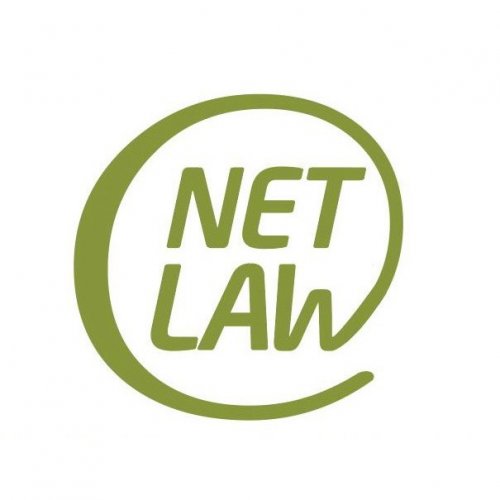Best Telecommunications and Broadcast Lawyers in Vietnam
Share your needs with us, get contacted by law firms.
Free. Takes 2 min.
Or refine your search by selecting a city:
List of the best lawyers in Vietnam
About Telecommunications and Broadcast Law in Vietnam
Telecommunications and broadcast are rapidly evolving sectors in Vietnam, reflecting the nation's embrace of technological advancement and increased connectivity. With a burgeoning digital landscape, Vietnam's legal framework surrounding telecommunications and broadcast is designed to regulate and support infrastructure development, market competition, and information security while ensuring compliance with national interests. The Ministry of Information and Communications (MIC) is the principal regulatory body, overseeing policies and strategies to promote these sectors' growth.
Why You May Need a Lawyer
Legal assistance in telecommunications and broadcast might be essential for several reasons. Individuals or businesses may require help with licensing processes to operate a telecom company, ensuring compliance with rapidly changing regulations, or navigating issues of spectrum allocation and interference. In broadcasting, legal support may be required to understand copyright issues, content restrictions, or to resolve disputes regarding broadcasting rights. Lawyers can offer valuable guidance on regulatory compliance, help defend against any alleged breaches, and assist in drafting and negotiating contracts relevant to these fields.
Local Laws Overview
The legal framework for telecommunications and broadcast in Vietnam is guided by two principal laws: the Law on Telecommunications and the Law on Radio Frequencies. The Law on Telecommunications focuses on technological advancements, market liberalization, and consumer protection. It outlines the roles of service providers, defines licensing requirements, and establishes consumer rights. Complementing this, the Law on Radio Frequencies addresses the management and regulation of radio spectrum, an essential resource for broadcasters and telecom operators. The laws aim to ensure effective competition, efficient spectrum use, and protection of public interest while fostering innovative services across the country.
Frequently Asked Questions
What is the Ministry of Information and Communications (MIC)?
The MIC is the primary regulatory agency responsible for overseeing telecommunications and broadcasting in Vietnam. It develops policies, grants licenses, and ensures compliance with national regulations.
Do I need a license to operate a telecommunications service in Vietnam?
Yes, any entity seeking to provide telecommunications services in Vietnam must obtain a license from the Ministry of Information and Communications.
What are the penalties for non-compliance with telecommunications regulations?
Penalties can range from fines to the suspension or revocation of operating licenses, depending on the severity and nature of the non-compliance.
How are broadcasting rights regulated in Vietnam?
Broadcasting rights are regulated under specific laws addressing content distribution, intellectual property issues, and licenses required to broadcast legally.
What are the restrictions on content for broadcasters in Vietnam?
Content must comply with national security standards, cultural values, and build societal harmony, adhering to guidelines set by the MIC.
Can foreign companies invest in Vietnam's telecommunications sector?
Yes, but there may be restrictions on foreign ownership, often requiring joint ventures with Vietnamese partners or adherence to specific investment conditions.
What measures are in place to protect consumer data in Vietnam?
Telecommunications companies must implement measures to protect user data, adhering to data privacy regulations outlined by the MIC.
How does Vietnam manage its radio spectrum allocation?
Spectrum allocation is managed by the Radio Frequency Department under the MIC, ensuring fair and efficient distribution among users.
What are the legal avenues for resolving disputes in telecommunications and broadcasting?
Disputes can be resolved through mediation, arbitration, or court proceedings depending on the nature of the issue and applicable laws.
Can individuals sue for unauthorized use of their broadcast content?
Yes, individuals or companies can take legal action for the unauthorized use of their content, typically under intellectual property law or specific broadcasting regulations.
Additional Resources
For those seeking further information or assistance, several resources and institutions may prove helpful:
- Ministry of Information and Communications (MIC): Main regulatory body governing telecommunications and broadcasting.
- Vietnam Telecommunications Authority (VNTA): Handles telecommunications management and facilitates policy implementation.
- Vietnam Radio Frequency Department: Manages the nation's radio spectrum resources.
- Legal Publications: Various legal journals and publications offer insights into the trends and legal interpretations relevant to telecommunications and broadcasting.
Next Steps
If you find yourself in need of legal assistance in telecommunications and broadcast in Vietnam, consider the following steps:
- Identify Your Needs: Clearly define the specific assistance you require, whether it is licensing, compliance, or dispute resolution.
- Consult a Legal Expert: Engage a lawyer or legal firm specializing in telecommunications and broadcasting to receive tailored advice.
- Contact Regulatory Bodies: Reach out to the MIC or relevant departments for official guidance or clarification on regulatory requirements.
- Review Contracts and Agreements: Ensure any contractual obligations or partnerships are thoroughly vetted by a legal professional to secure your interests.
- Stay Informed: Keep updated with legislative changes or industry news that may impact your operations in Vietnam’s telecom and broadcast sectors.
Lawzana helps you find the best lawyers and law firms in Vietnam through a curated and pre-screened list of qualified legal professionals. Our platform offers rankings and detailed profiles of attorneys and law firms, allowing you to compare based on practice areas, including Telecommunications and Broadcast, experience, and client feedback.
Each profile includes a description of the firm's areas of practice, client reviews, team members and partners, year of establishment, spoken languages, office locations, contact information, social media presence, and any published articles or resources. Most firms on our platform speak English and are experienced in both local and international legal matters.
Get a quote from top-rated law firms in Vietnam — quickly, securely, and without unnecessary hassle.
Disclaimer:
The information provided on this page is for general informational purposes only and does not constitute legal advice. While we strive to ensure the accuracy and relevance of the content, legal information may change over time, and interpretations of the law can vary. You should always consult with a qualified legal professional for advice specific to your situation.
We disclaim all liability for actions taken or not taken based on the content of this page. If you believe any information is incorrect or outdated, please contact us, and we will review and update it where appropriate.
Browse telecommunications and broadcast law firms by city in Vietnam
Refine your search by selecting a city.















